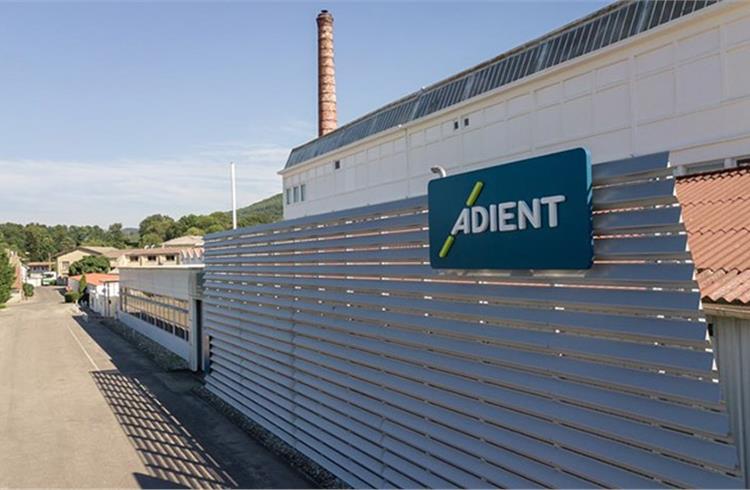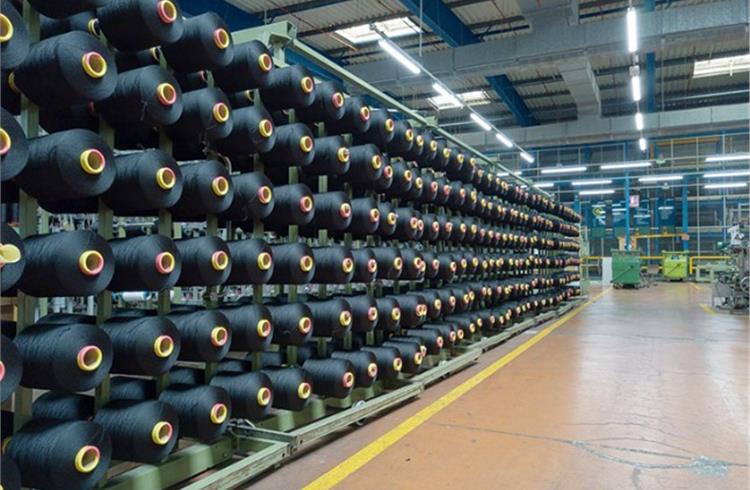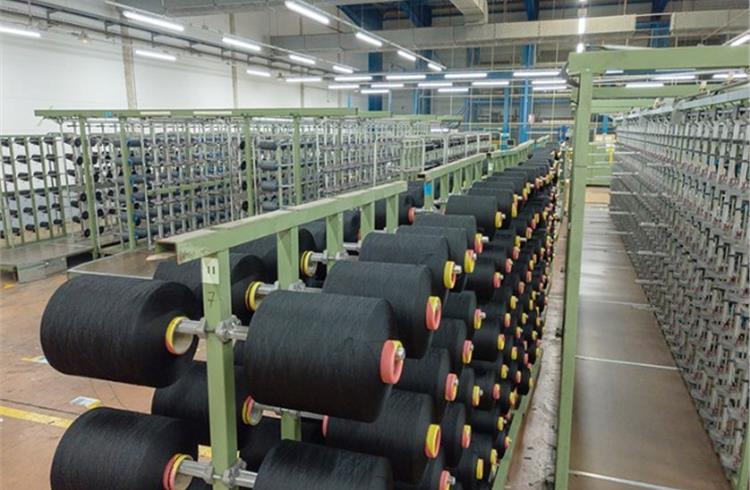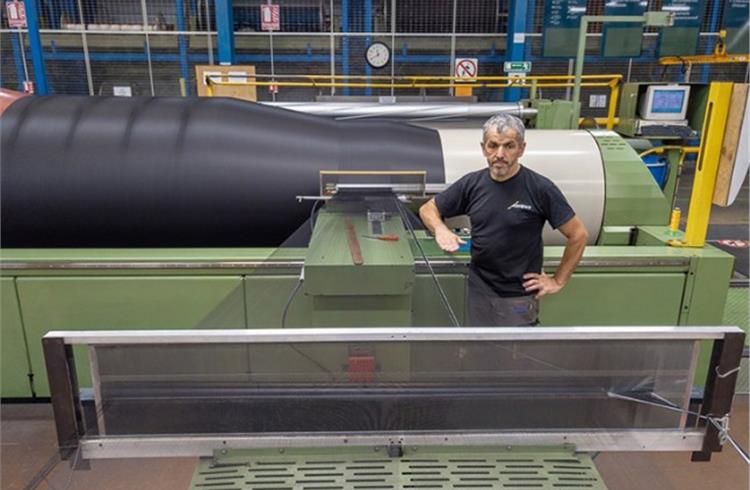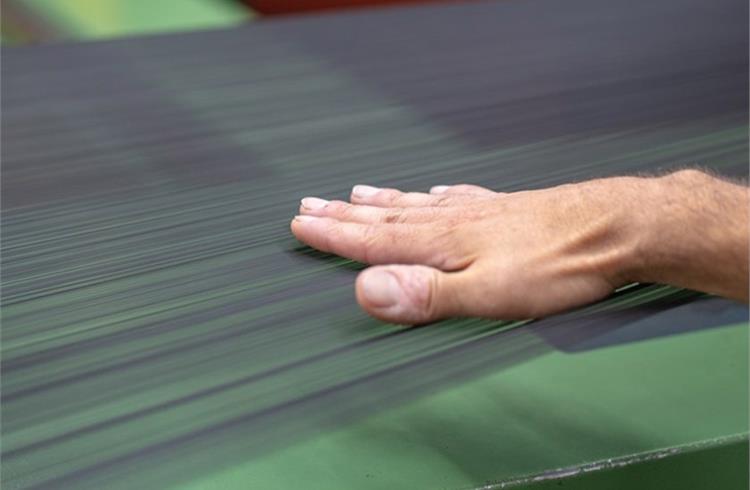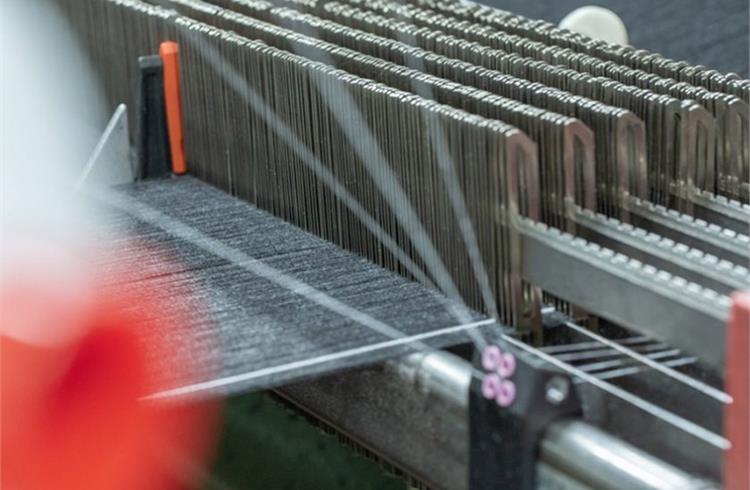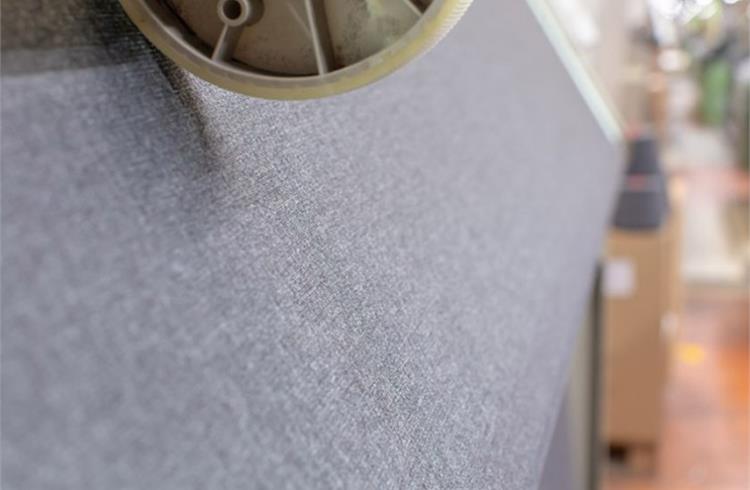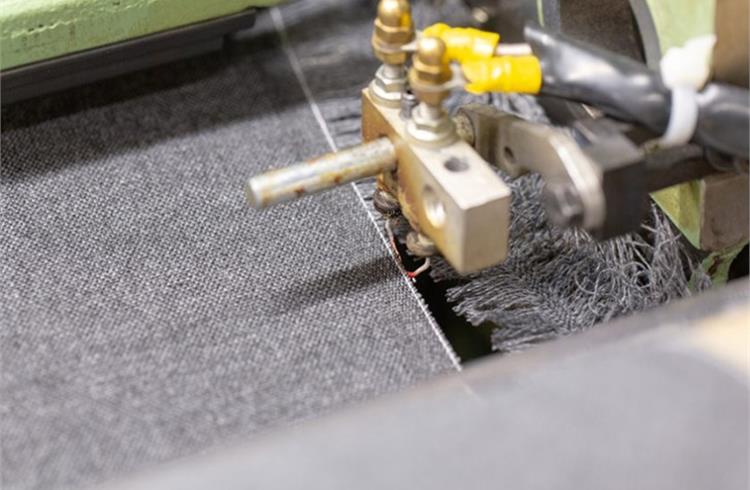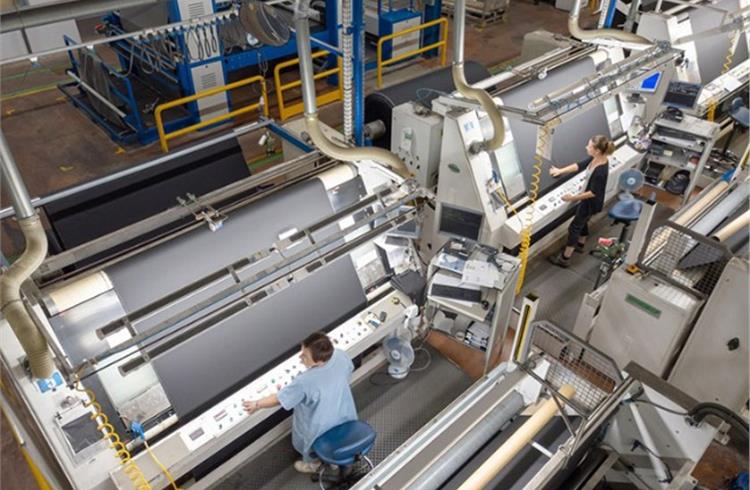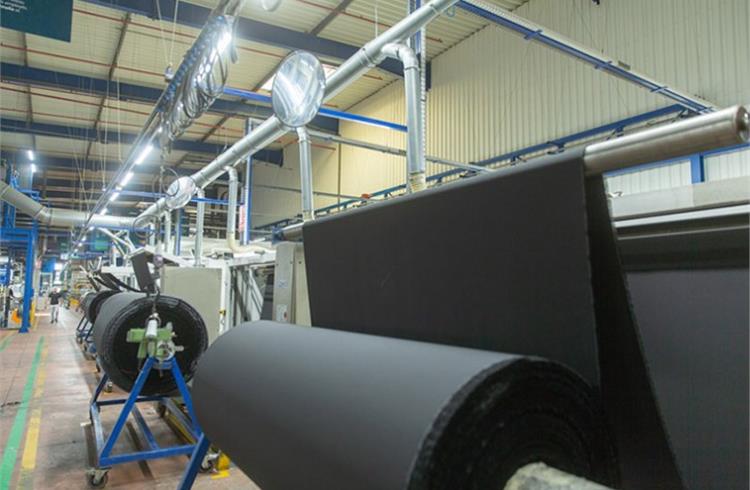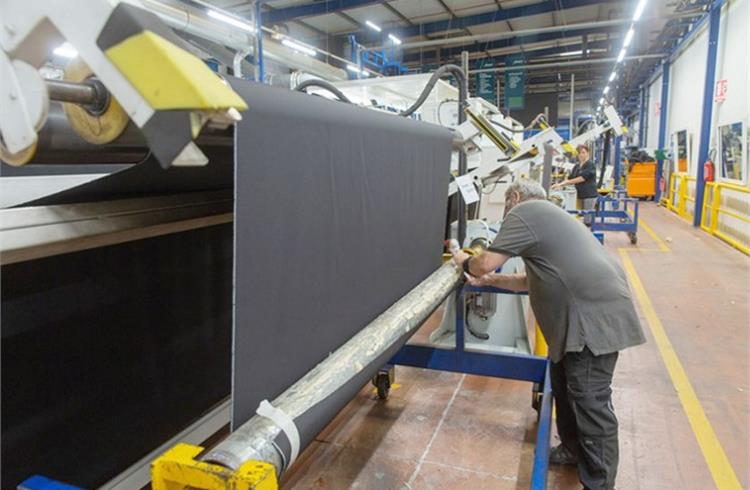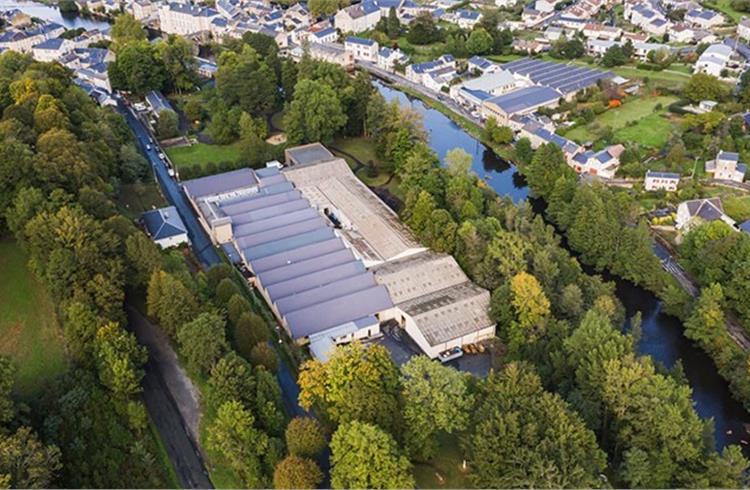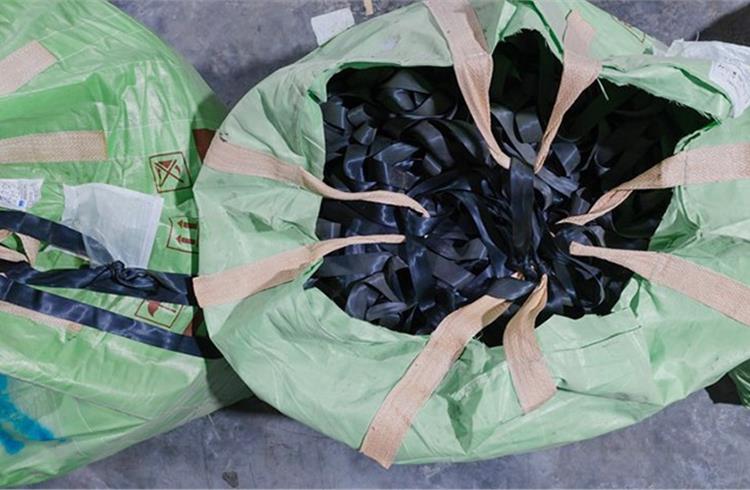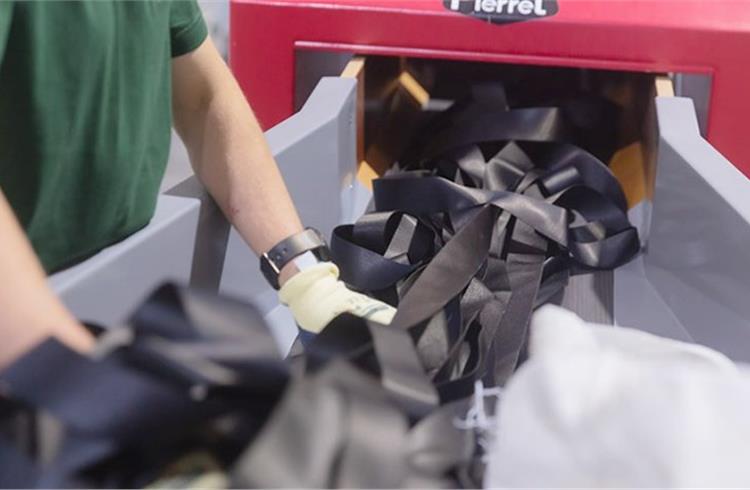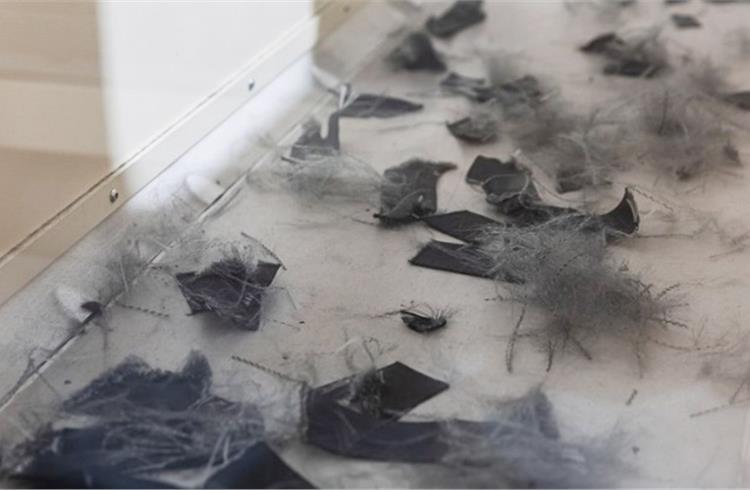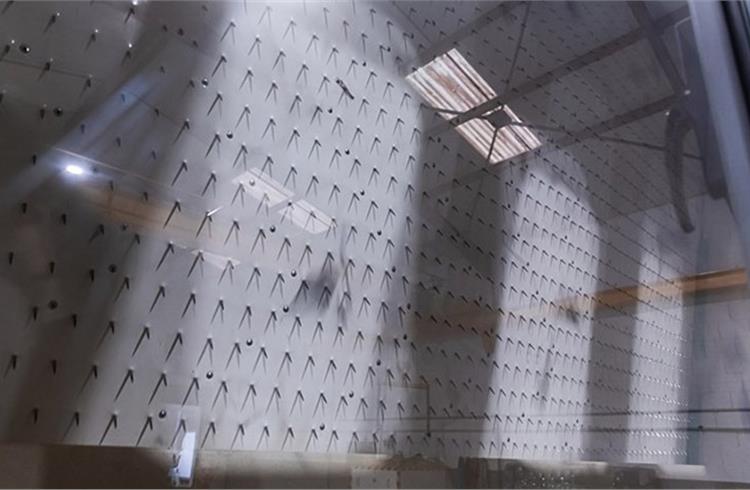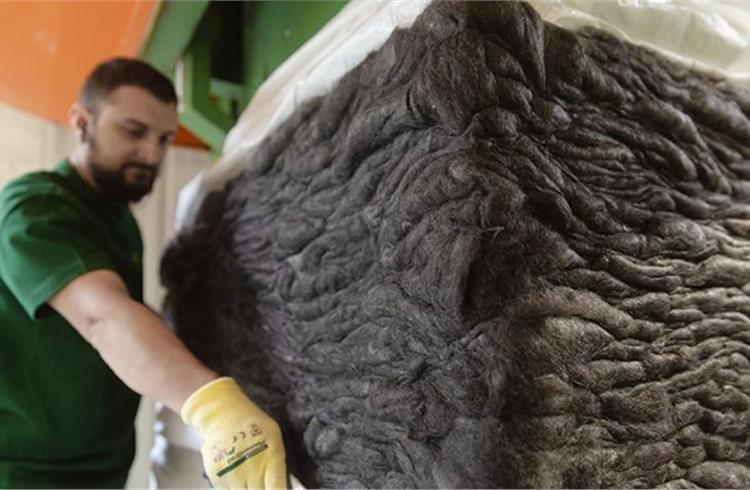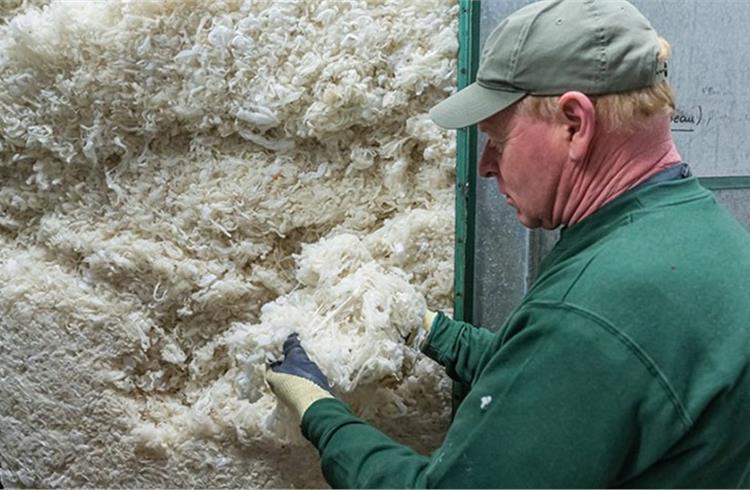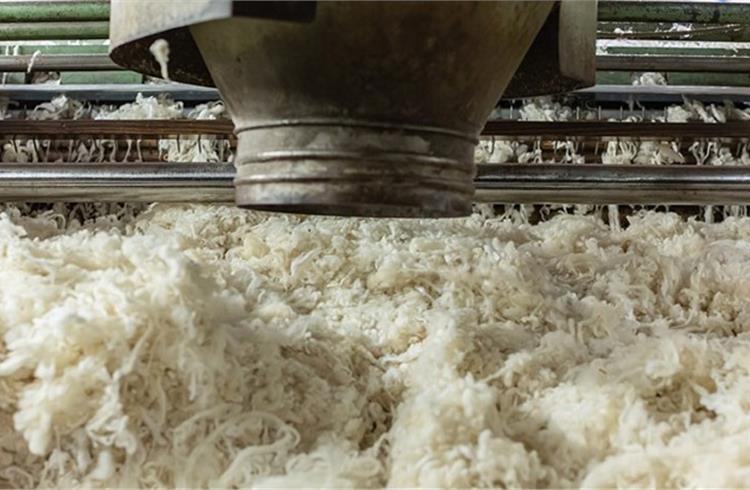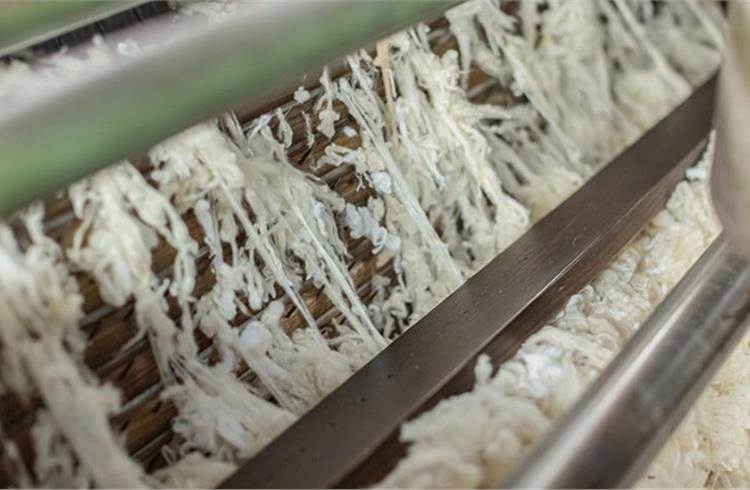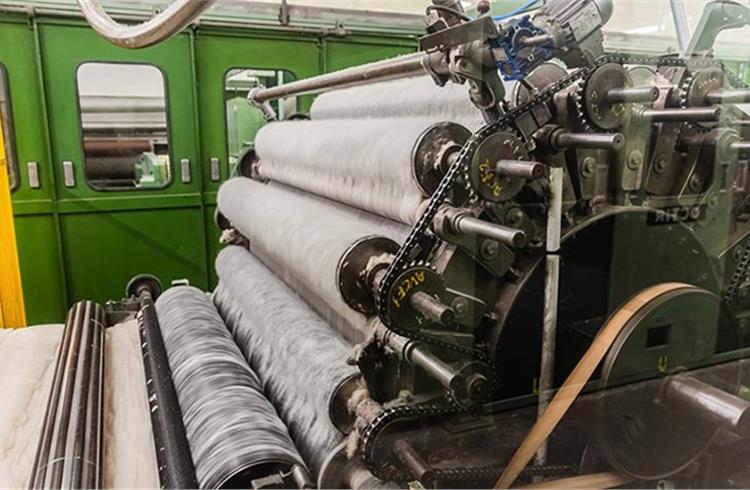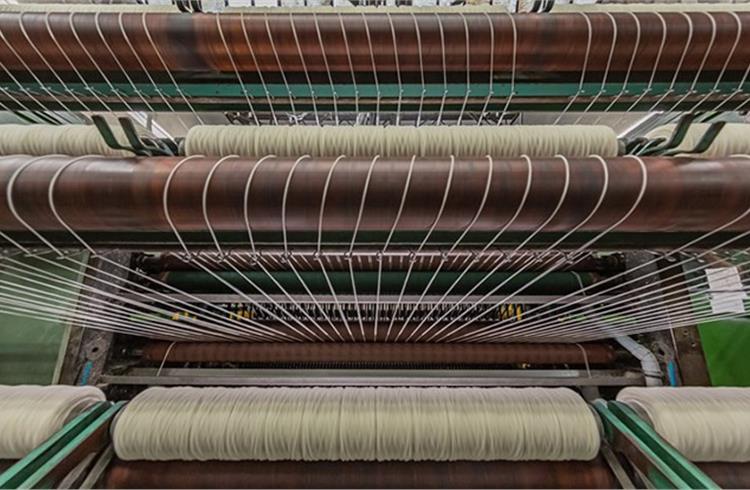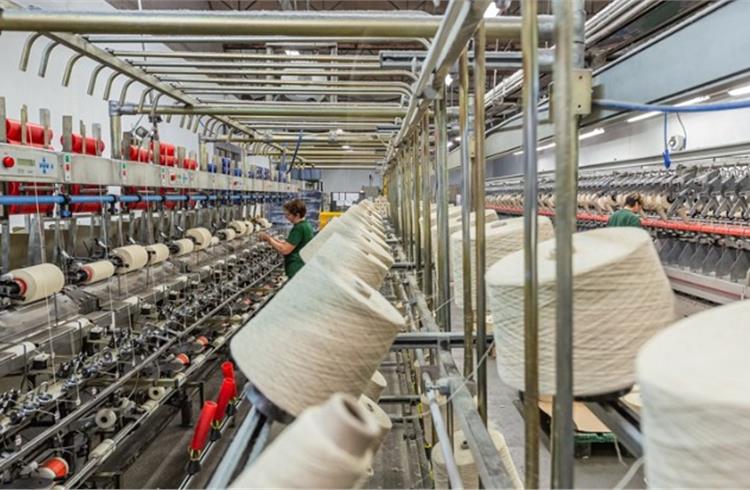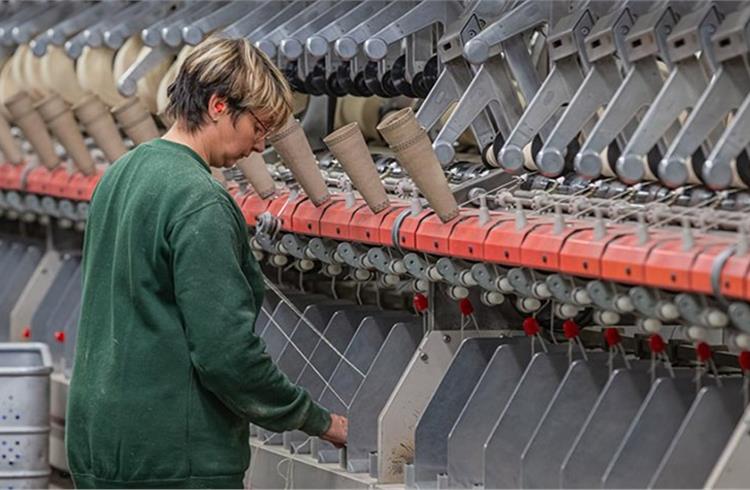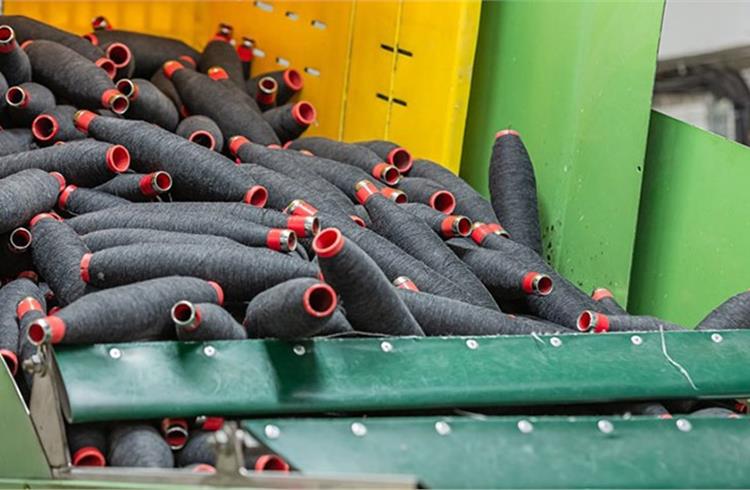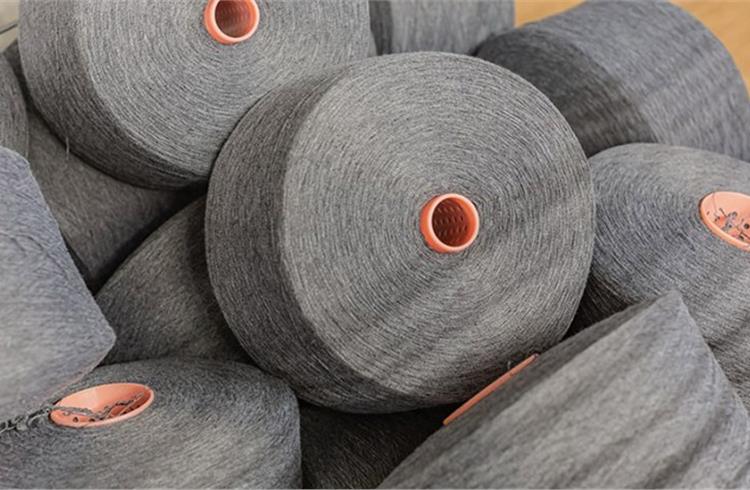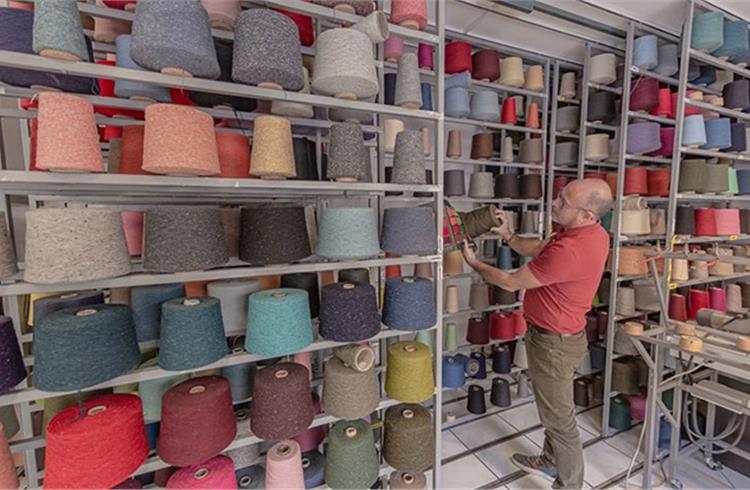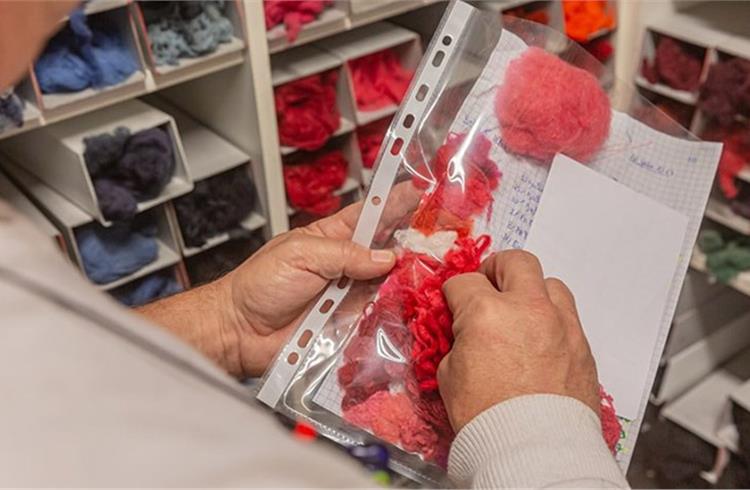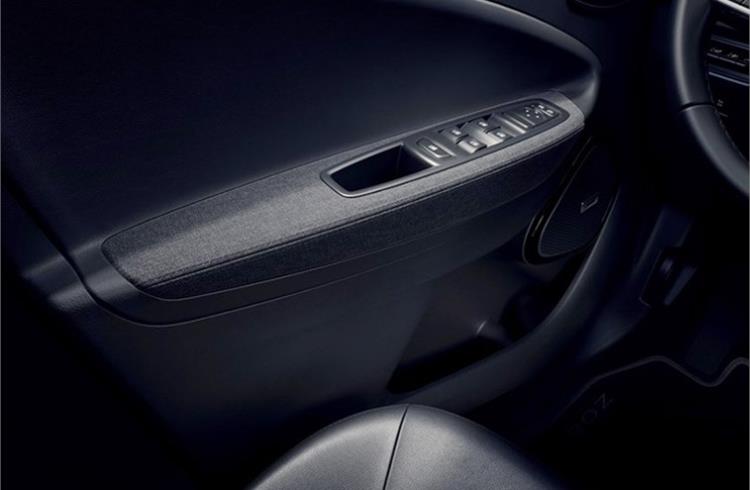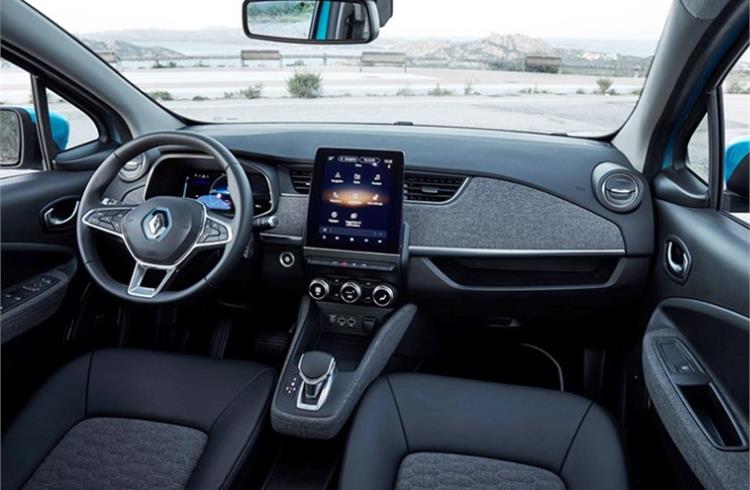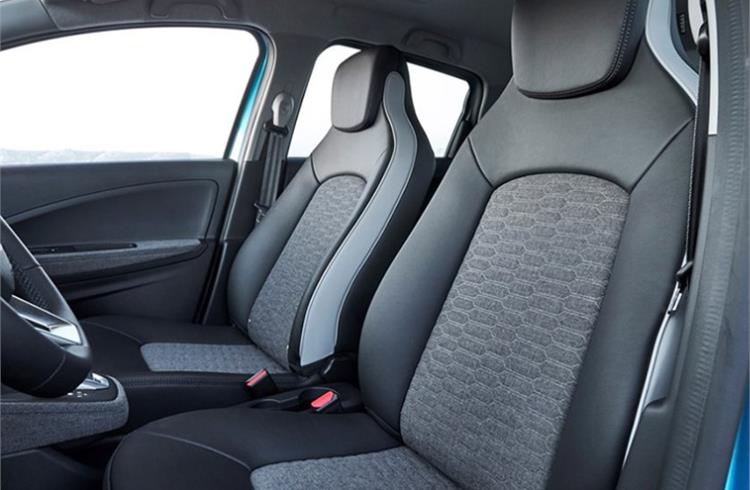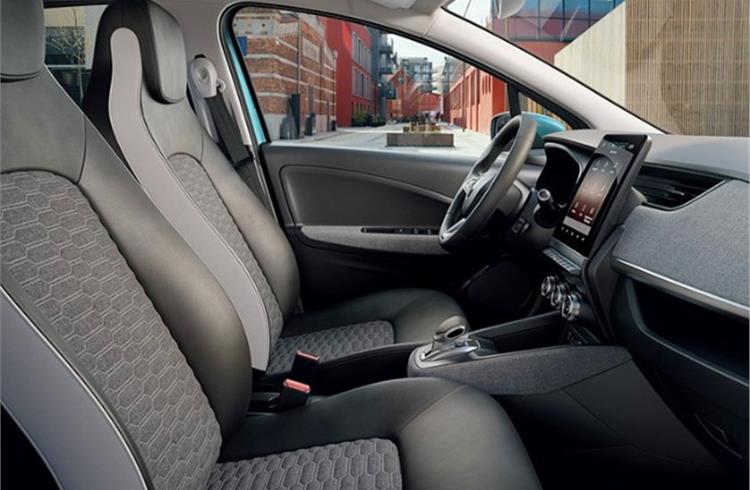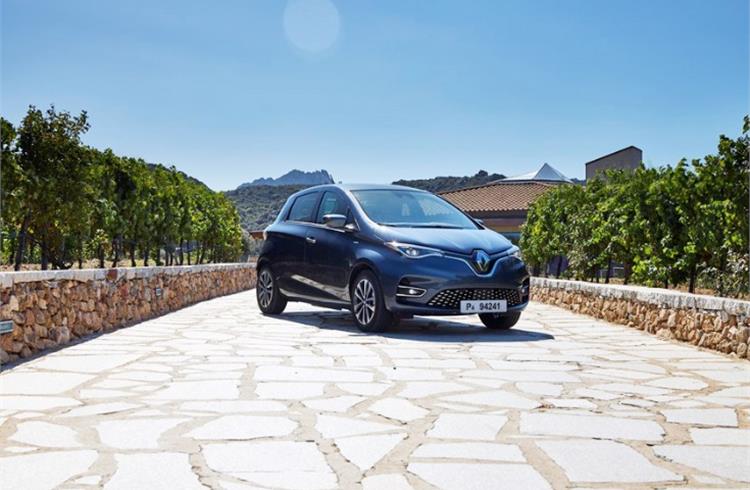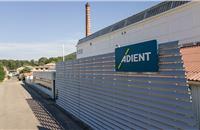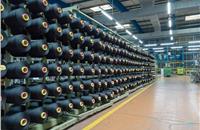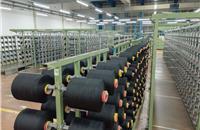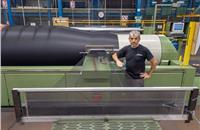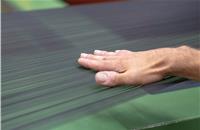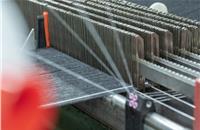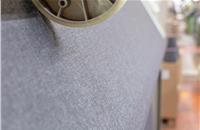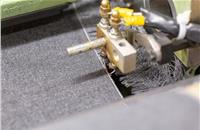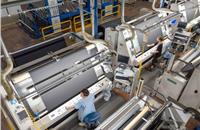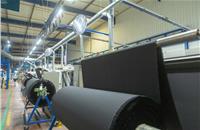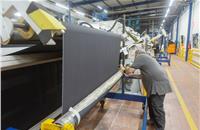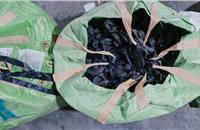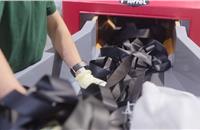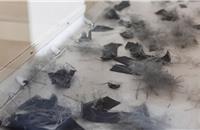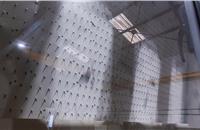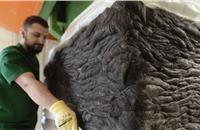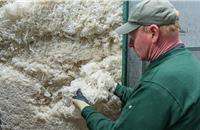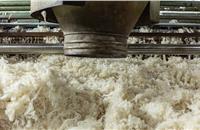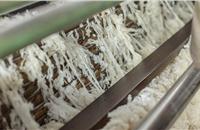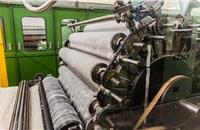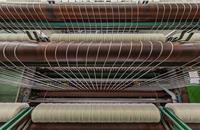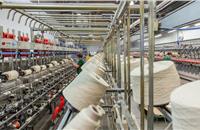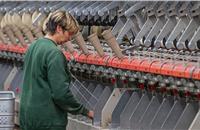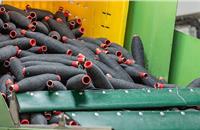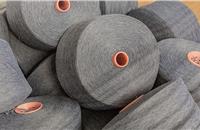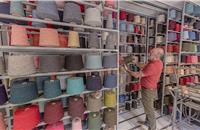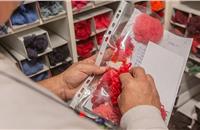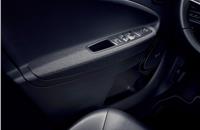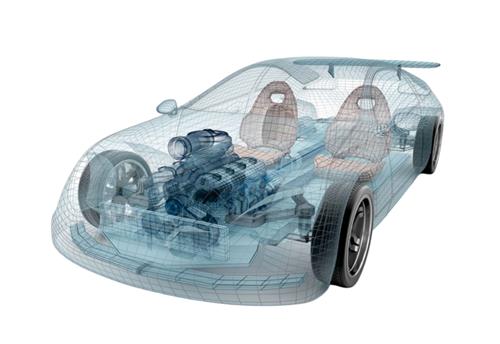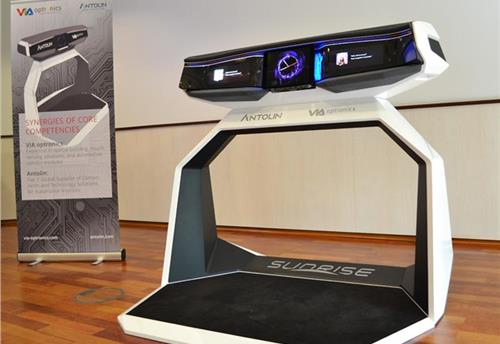New Renault Zoe uses fabric made from recycled safety belts, textile scrap and plastic bottles
Innovative short loop manufacturing process reduces carbon footprint by 60 %; fabric used to make seat covers, dashboard coverings, gear lever brackets and door fittings, and meets the high requirements for comfort, cleaning, UV resistance and durability.
French carmaker Renault has announced development of a unique fabric made from 100% recycled materials including safety belts, textile scrap from the automotive industry and polyester fibres from the recycling of plastic bottles (PET).
This is the result of a breakthrough industrial application, co-developed by Groupe Renault, Les Filatures du Parc, a French company specialised in carded yarn, and Adient Fabrics, the world's leading supplier of automotive seats, with the support of Ademe and the Occitania region in France.
As a result of the traditional know-how of carded yarn and co-developed innovations, this textile product now covers the interior of the new Renault Zoe. The fabric, covering a total area of 8 square metres, is used for the manufacture of seat covers, dashboard coverings, gear lever brackets and door fittings, and meets the high requirements for comfort, cleaning, UV resistance and durability.
Renault says the supply and short loop manufacturing of this recycled carded yarn - without chemical or thermal transformation - reduces associated CO2 emissions by more than 60% compared to the previous Zoe fabric from a standard manufacturing process.
The process explained
Renault Environment, a Groupe Renault subsidiary, collects materials intended for a second life, such as scraps of safety belts and scrap from the manufacture of virgin fabrics for the automotive sector.
For the manufacture of the yarn, the Group relies on the Filatures du Parc, which has developed a new industrial defibering line adapted to the robustness of safety belts, an essential step in preparing raw materials and optimising fiber length.
Once cut and shredded, the belt and textile fibres are mixed with polyester fibres from plastic bottles that guarantee the cohesion of the fibres, before undergoing a series of carding operations. Derived from the term 'thistle' or spicy spiky plant, the traditional carding technique makes it possible to obtain a new weaving yarn thanks to a system of drums lined with very fine steel tips rotating at high speed. This know-how thus makes it possible, without chemical or thermal transformation, to disentangle and then divide, to stretch, then align parallel and finally to twist the fibres cleared of impurities.This 100% recycled carded yarn has been patented jointly by Groupe Renault with Filatures du Parc.
Adient Fabrics, a weaver and supplier of one out of three automotive seats in the world, receives the reconstituted yarn on reels at its Laroque d'Olmes site (Ariège), located only 120km from the spinning mills, to weave and produce the automotive fabric, upholstery and interior trim for the vehicles.
Company-speak
According to Jean-Philippe Hermine, Director of Environmental Strategy & Planning for Groupe Renault, "Faced with the challenge of the energy transition, industries have an essential role to play in changing their production methods and reducing their environmental impact. With the support of our partners Filatures du Parc and Adient Fabrics, we are demonstrating that it is possible to implement circular and competitive development models focused on resources, while acquiring a valuable competitive advantage at a time when the availability and cost of raw materials are becoming a real strategic issue. This approach contributes to the Group's commitment to reduce the environmental impacts of each vehicle throughout its life cycle and to reduce its global carbon footprint by -25% in 2022 compared to 2010.
Fabrice Lodetti, Manager of Filatures du Parc, added: "For 15 years, our company has been working on the manufacture of recycled yarns from used textile materials for the clothing and furniture sectors in particular. This now represents more than 60% of our activity, our objective being to eventually reach 100% of production. We are convinced of the relevance of this responsible social and economic model, to limit the impact on the environment and preserve natural resources in the years to come."
Mathias Daynie, Director of the Adient Fabrics plant in Laroque d'Olmes in France, pointed out that, "The development of fabrics made from short-loop recycled products, such as the one designed for the new Zoe, is undeniably the future of our business. The prospects are very important both in the automotive industry and in other sectors of activity that will certainly follow this approach from an environmental, ethical and economic point of view."
RELATED ARTICLES
Marelli Talbros Chassis Systems wins Rs 1,000 crore business from European OEM
The order, to be executed over an eight-year period, is for the supply suspension arms tailored for both conventional in...
Kia launches customised NBA display themes for North American market
Display Themes is a customised service that supports a personalised vehicle experience, allowing users to customise the ...
Antolin and VIA Optronics unveil versatile vehicle cockpit concept
The Sunrise vehicle concept cockpit, which is engineered for seamless transitions between manual and autonomous driving ...





 By Autocar Pro News Desk
By Autocar Pro News Desk
 14 Nov 2019
14 Nov 2019
 11873 Views
11873 Views



